Metaphor:ReFantazio blurs the lines between what is fiction and reality, allowing it to become something else entirely.
When it comes to telling stories happening within the span of a year, ATLUS have always been a master of the craft. Over time, their gaming catalogue has proven to create many immersive, yet thought-provoking experiences, as seen in their flagship Persona franchise.
Even if that was the case, in an attempt to try something different, Metaphor:ReFantazio was announced during 2024’s Xbox game Showcase. When the game finally came out, the story it had to tell was something seen like never before within ATLUS' gaming repertoire.
So what is Metaphor:ReFantazio about?
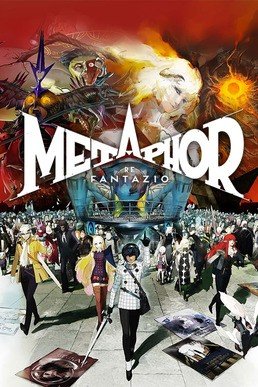
Bluntly put, Metaphor tells a fantasy story about the country of Euchronia's struggle to decide their next monarch during dire circumstances.
Gameplay-wise, Metaphor borrows a lot of elements from many of Atlus’ other games, such as Persona’s calendar transitions, or Shin Megumi Tensei’s press-turn system.
On top of this, the game stands on its heels when it came to changing up traditional turn-based combat. This is done through the game encouraging players to manoeuvre around enemies within a dungeon, forcing them to hit enemies consecutively in field combat so they can stun enemies before beginning battles.
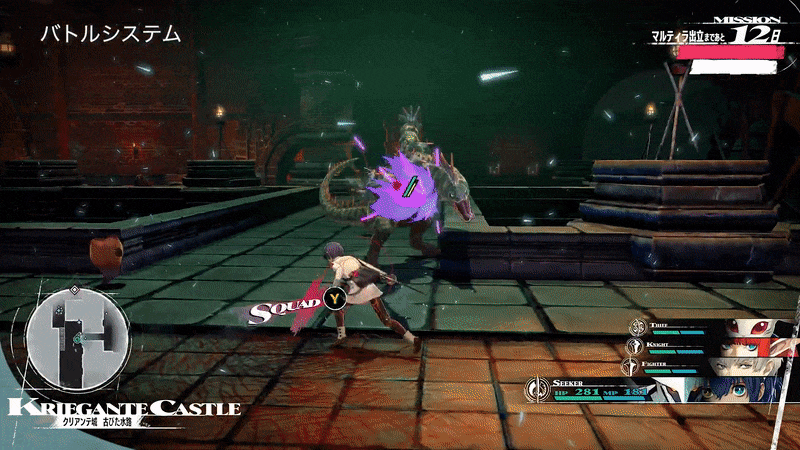
The game released with critical acclaim, proving itself as yet another (in my own words) ATLUS banger, through being considered a must-play for fans of turn-based games. Having finally gotten around to playing and beating the game myself (I'm on my New Game+ run as of the time of me writing this article), I find myself agreeing with much of the game's high praise.
In fact, what struck me most when it came to Metaphor wasn't even its fantastically unique gameplay, or it's satisfying progression system. No, no. In true Yoshistar fashion, I fell in love with the game's incredible story.
But not just the story! I loved everything about its characters, setting, symbolism and most of all - presentation. The game made me do something I loved doing when discovering new media. It made me think, ponder, and analyse its setting between myself and my friends, because we wanted to truly uncover the messages the story was trying to tell.
What did I do after my analytical conversations with my friends? Well, this article exists now, so I think that answers that question!
So what is the story of Metaphor about?
Metaphor takes place in the continent of Euchronia. The story begins with the country in turmoil after the assassination of its king. Despite his passing, however, the king himself leaves behind a magical spell, making it so that no one may take the mantle of the country’s monarch without first winning the praise of its people beforehand. After realising the magic's affects, the government of Euchronia announces a competition for the right to rule, ensuring its candidates perform a myriad of trials and tribulations in order to win the public's praise.
While this is going on, the game's protagonist, alongside his fairy companion, Gallica, are on their own mission. They're tasked with defeating a well-renowned, yet equally infamous candidate for the competition set to take place, Louise. Not only is Louise suspected of having killed the king in the first place, but so too is he suspected of being responsible for putting the prince in an eternal slumber many years prior.
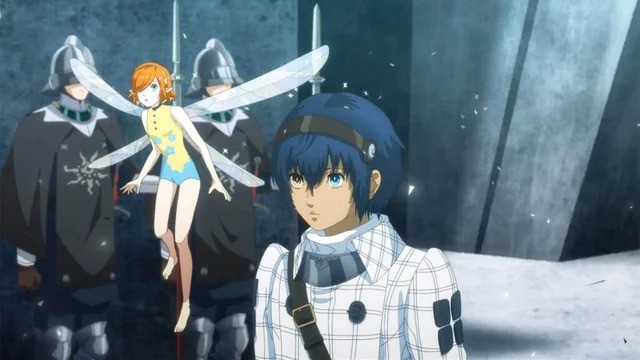
After some time passes in the story, it's revealed that the king's magic prevents Louise from being killed unless certain conditions are met. Realising this, the protagonist, alongside his newly met allies, Hulkenberg and Strohl, decide to enter the King’s Candidacy Competition in hopes of getting close enough to Louise so that they can figure out a way to kill him.
This is the initial premise (as best summarised by my words). It's a fairly ambitious plot, yet the ongoing political intrigue and underlying mystery helps make it work.
Part of what makes Metaphor’s story so strong is its direct address to the player
A large part of the reason why I personally took a shine to Metaphor’s presentation was not only through its story, but also the subtextual nods the game alludes to help boost its messages of creating a better world, while subtly implying its motif of reality and fantasy being one and the same altogether.
In a way, Metaphor:ReFantazio often feels as if it's constantly, directly, questioning the player. The game begins by asking you, the player, whether you believe that Fantasy would have the power to change reality. Upon giving your answer to the voice before you, does the game's story truly begin.
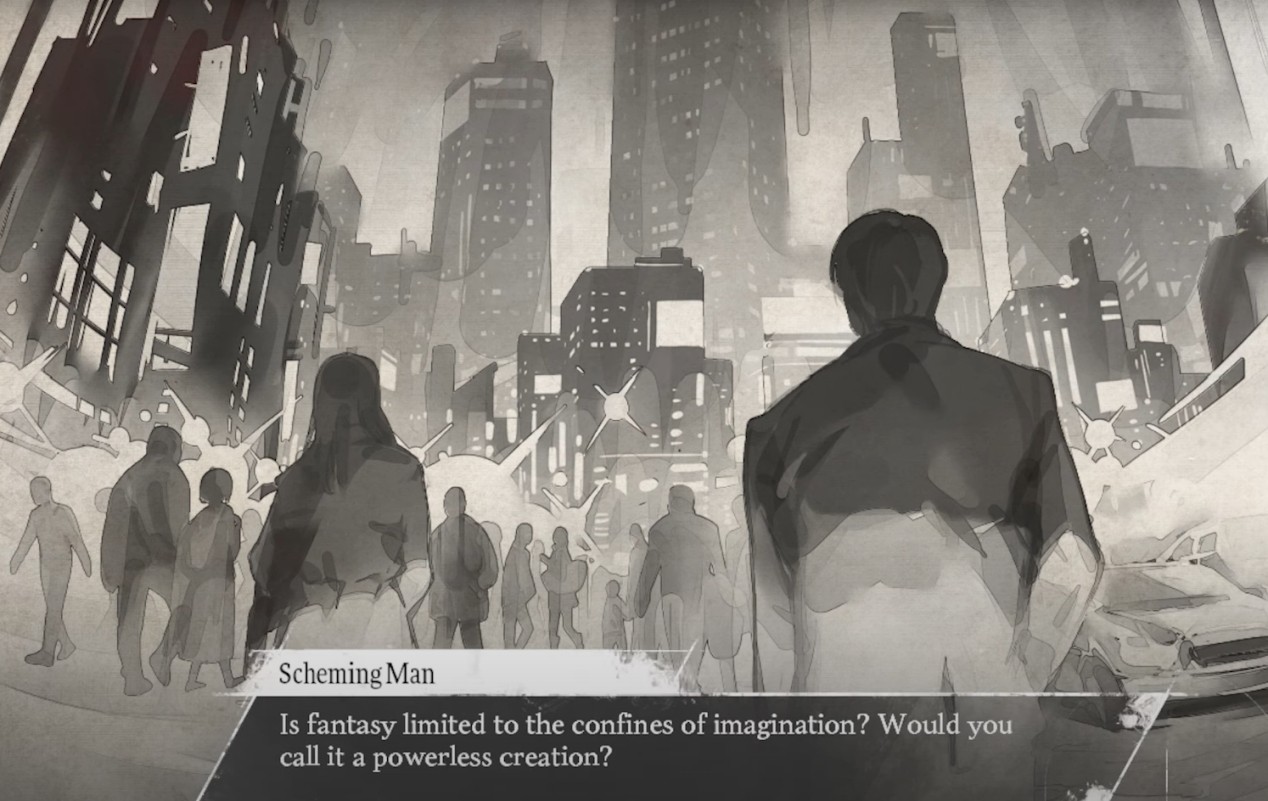
The conceptualisation of “Fantasy” is given a large emphasis throughout the game. While it seems simple at first, in reality, the game is trying to describe Fantasy akin to the concept of “Utopia” - a world without any faults, conflicts, or prejudices.
This visualisation for a utopia is constantly brought throughout the game. The protagonist of Metaphor carries with himself a book wherever he goes, which many of the game’s characters take an interest in upon meeting him when finding out it's a "fantasy book". This book is gradually read aloud across the game's story, detailing different parts of an idealised world and how it would function.
One of the things I found most fascinating with this world was how, much like the beginning to its story, it felt as if Metaphor was directly addressing the reader and their real world on many circumstances. The first read-throughs of the book are fairly basic, talking about a society where different tribes and cultures are treated equally, without outward prejudice haunting them. Later on, it delves into more nuanced aspects, such as religion, conflict, and how a leader of a utopia would operate based on their ideals.
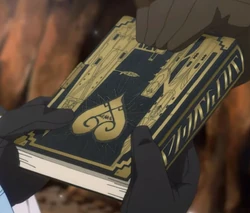
Notably, each chapter of the book often relates to the arcs of the characters reading them.
As an example, Eupha, having dealt with the ordeal of being touted as a pagan from the outside world, seeks refuge in the idea of a utopia allowing different cultures and religions to live side-by-side with one another while being free of judgement. Alternatively, Fidelio, a character who begrudgingly works with the protagonist later on due to circumstantial reasons, directly argues against the book's writing, stating that no matter what happens - the differences between certain individuals would later breed conflict regardless of how perfect the world ends up being.
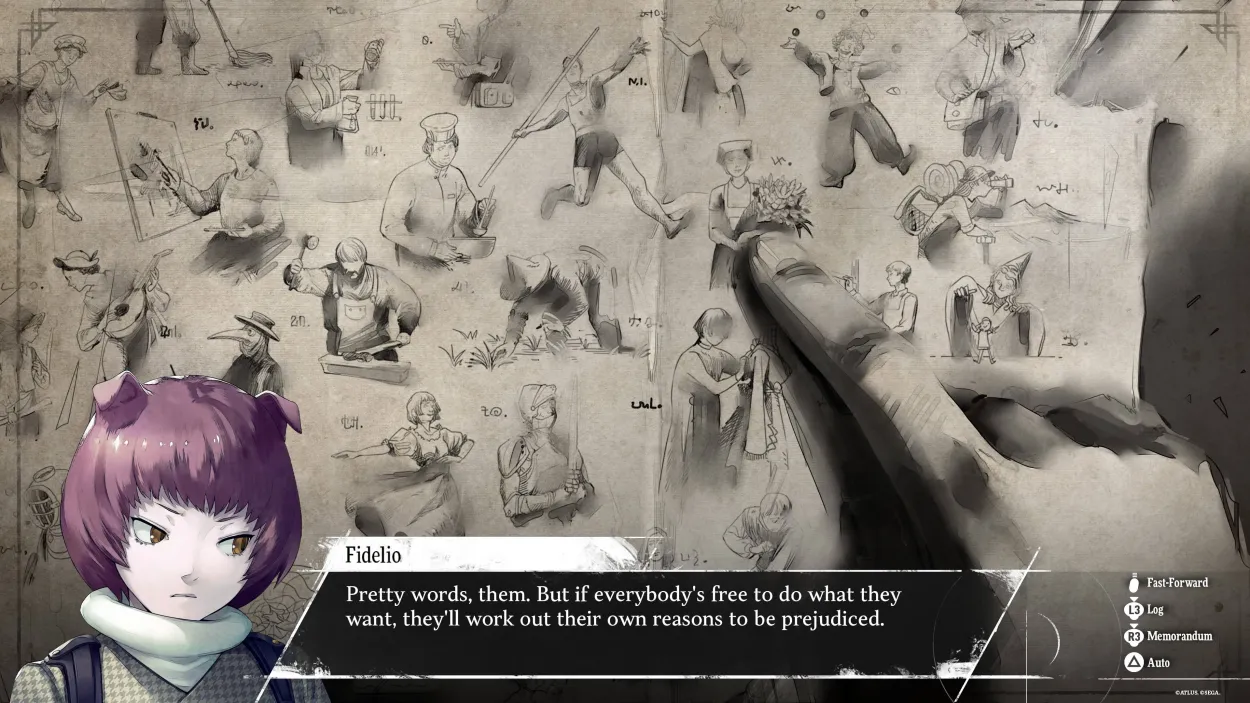
Much later on, this point brought up by Fidelio is later proven to be correct - at least according to the book - as it's later directly found to be a passage the fantasy novel chooses to end with.
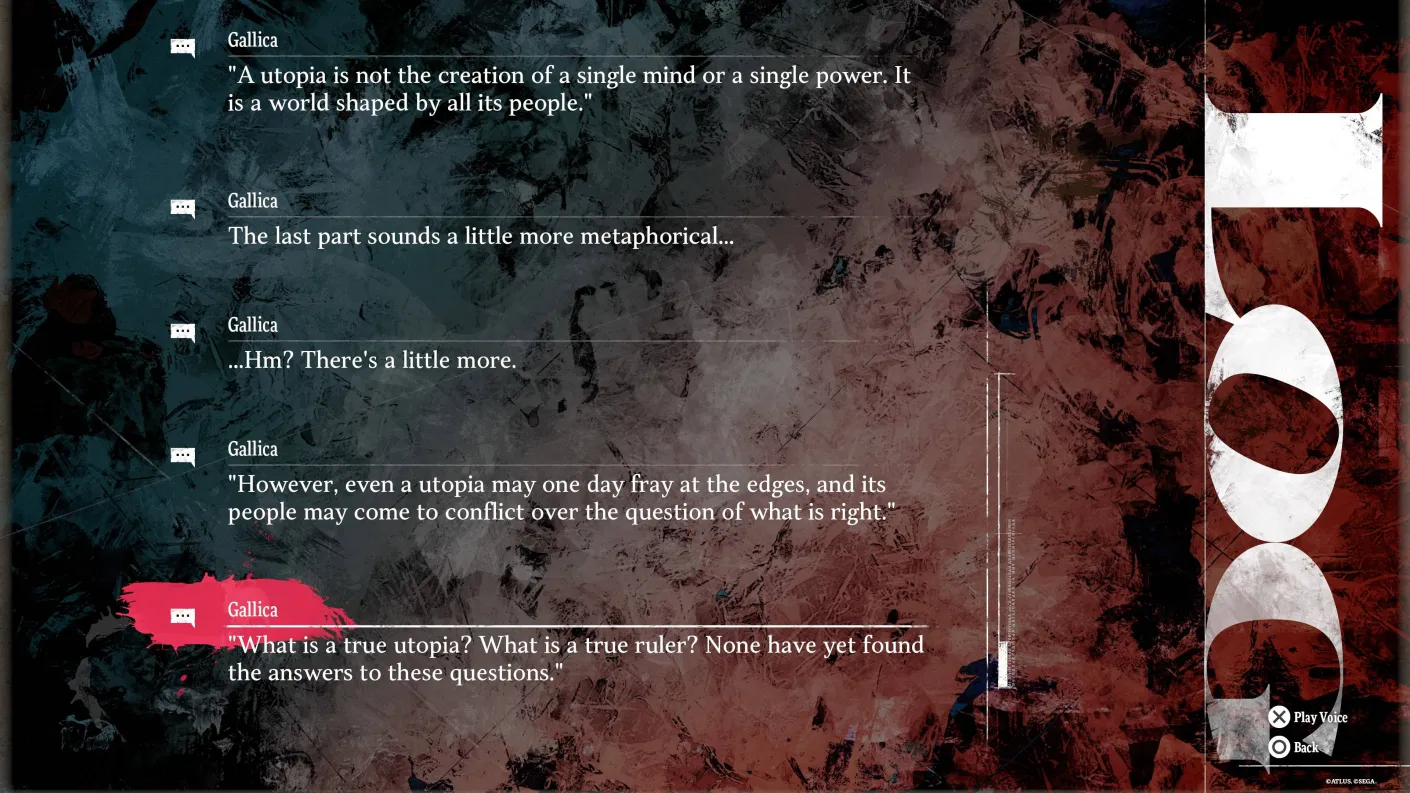
So what is Fantasy according to Metaphor?
Metaphor's story often implies the concept of Fantasy as something unreal, unattainable, and unimaginable. The Fantasy Book that the protagonist carries with him tells the story of an idealised world, with references to our very own reality drawn in on occasion. Personally, I felt as if what Metaphor was describing as Fantasy, was in its own way, a visualised concept of what reality could be if someone were to put their mind to it.
Not only do the characters in the game go through their own struggles, but they dream of a world that feels unimaginable in scale. This is a world where the struggles the characters go through are very important to them. They don't have time to think about what they're dealing with, and therefore can't spare the privilege of imagining the fictional utopia described in the protagonist's book.
The game’s opening scene asking the player the question of whether Fantasy could change reality is both a nod to the protagonist’s resolve to change the society around him with his idealised dreams - but also a direct message to the player on a meta level - asking them if a fictional piece of media such as Metaphor would be powerful enough to change their circumstances.
It's why something as minimal as the Game Over screen held so much meaning to me as I tried interpreting Metaphor. Even outside the game's story, being told that “Fantasy is dead” as opposed to a traditional “Game Over”, carried its own weight. The player wasn't just being told they had lost the battle, but were also being sent the message that the only pariah for creating an idealised world, being the protagonist, was no longer with Euchronia. They had robbed the country of its chances at a positive future.
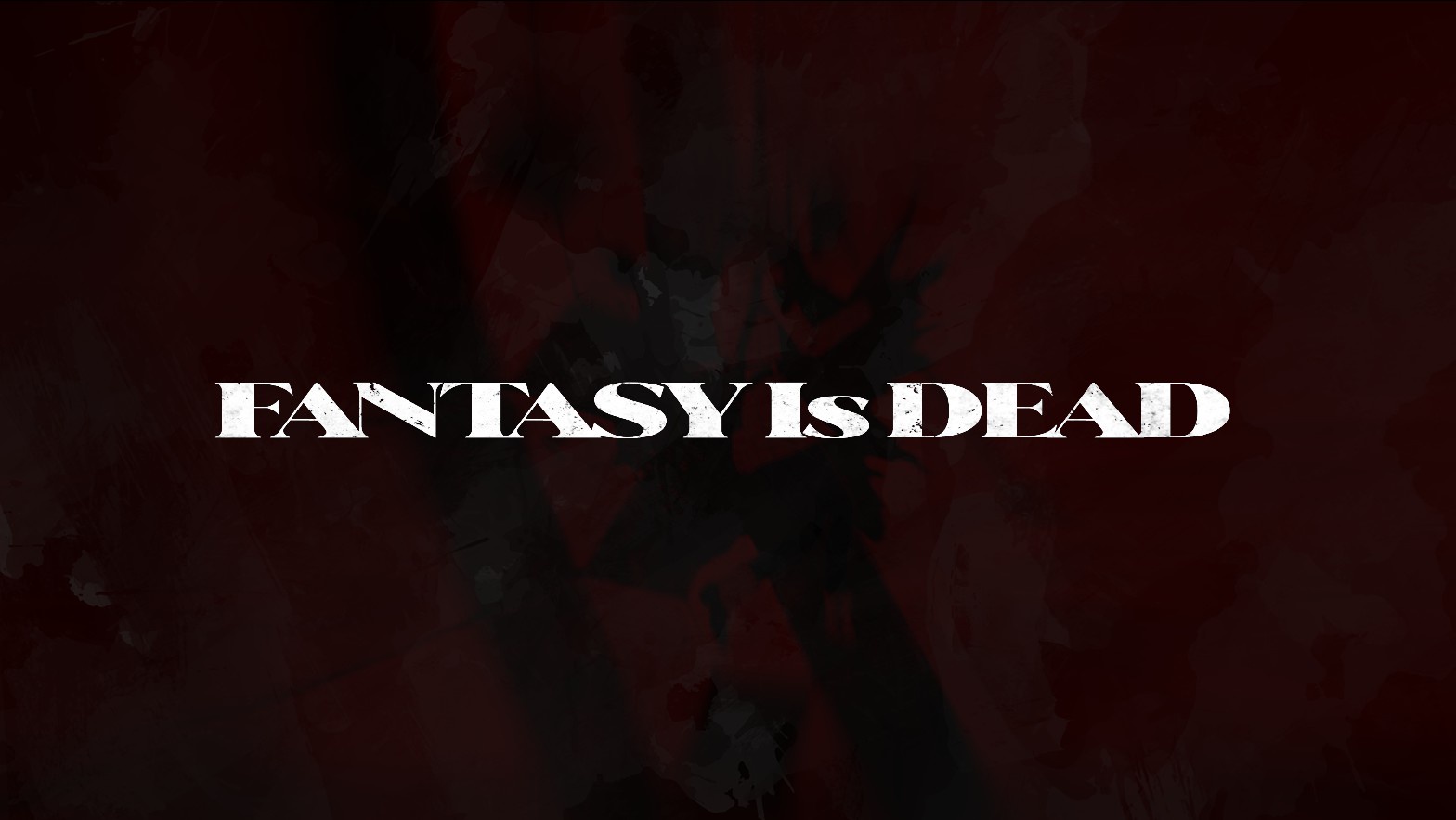
In a way, it feels as if Metaphor pushes the boundaries of its imagery for the sake of empowering its narrative
One thing I've not seen many other people bring up is the way the game goes about naming its traditional JRPG tropes. Notably, the class system within the game - typically used in a variety of games to define the roles of each respective character (examples would include a healer or a mage) - is instead named after something to do with literature entirely: Archetypes.
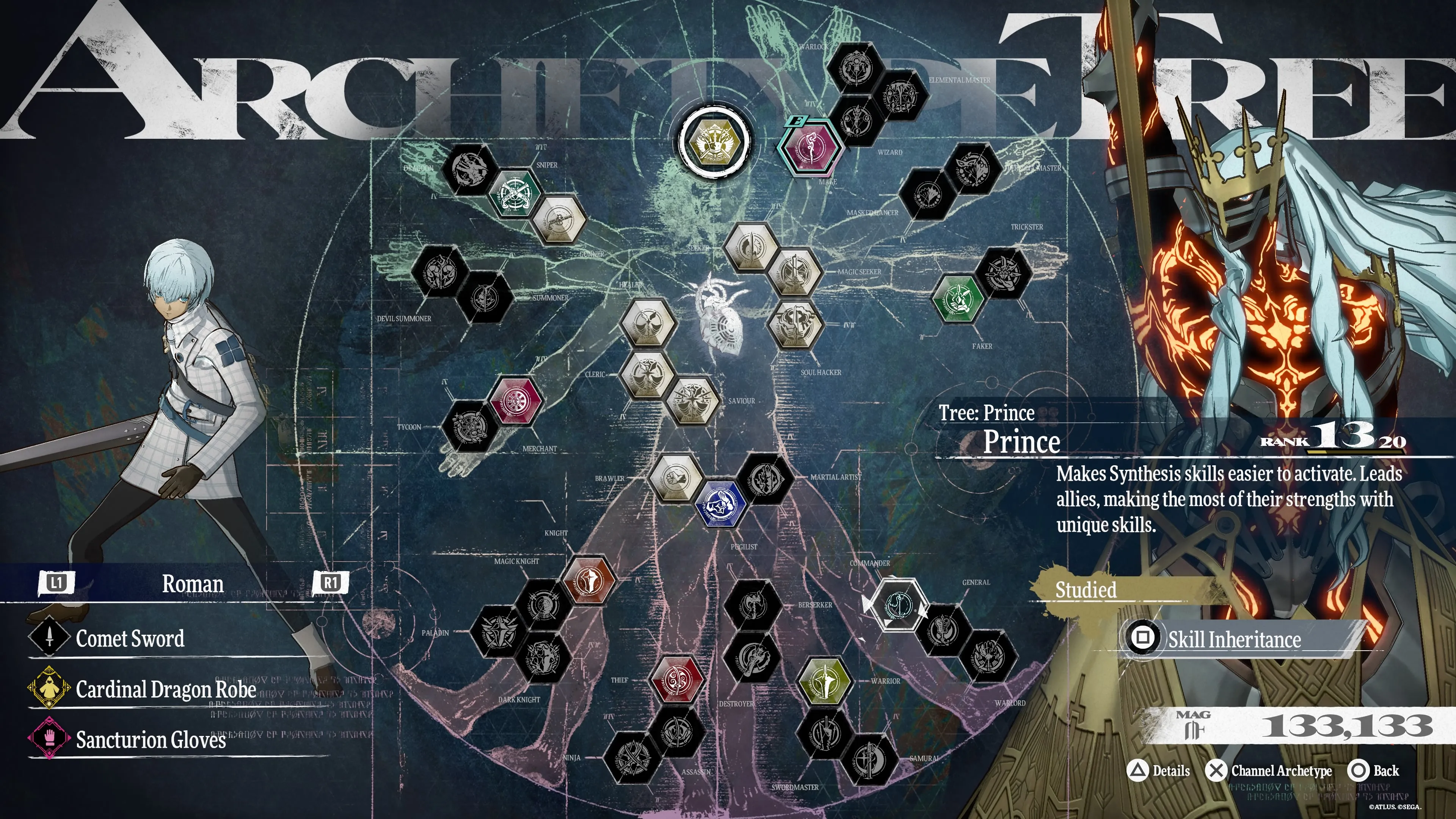
The meaning of archetypes works well for what Metaphor is going for, and makes for a very creative interpretation of the class system as seen in other games within its genre.
Broadly speaking, archetypes in literature often embody specific tropes, patterns, or narrative arcs often seen in literature. They're similar to the concept of tropes, in that they're seen constantly in various pieces of narrative media, but work on a more deeper, symbolical level.
Metaphor furthers the line of its story being a work of fiction through naming its classing system after the concept of archetypes. Not only does it have strong connotations to literature and media as a whole, but it goes a long way in implying to the player that they are creating their own story to better the game's future, through being able to control the respective roles of the game’s party members.
Metaphor twists the line of what it means to truly be human
One of my favourite pieces of metaphorical imagery from Metaphor stems from one of the Story's greatest threats, and that's seen through the very surprising interpretation the game has regarding humans.
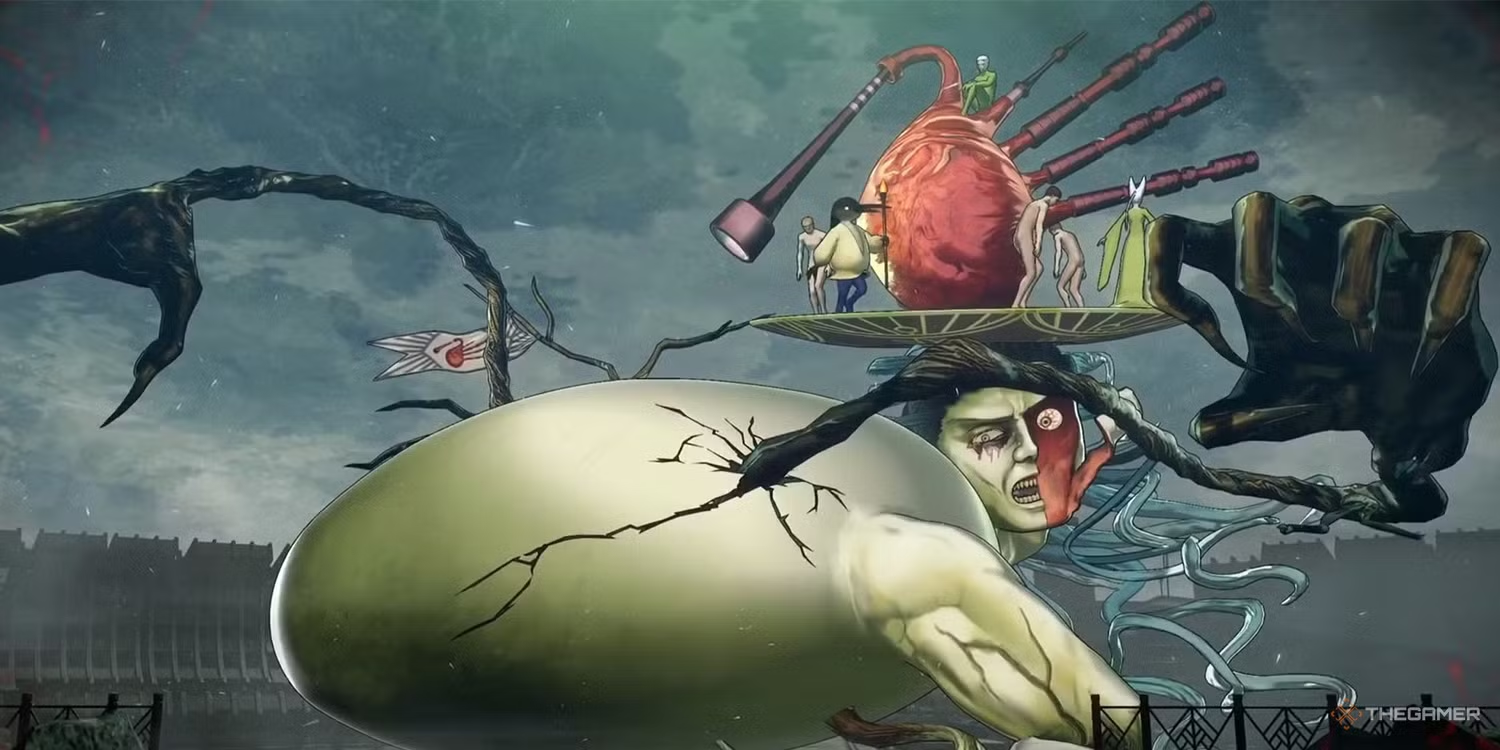
Humans in Metaphor are heavily inspired by 1500s Dutch painter, Hieronymus Bosch’s bizarre paintings. The game portrays humans as grotesque entities that the different races of Euchronia actively fear and fight against. In Metaphor, Humans are a feared breed of monsters that further disrupt the order of the world, however they are a threat that everyone puts down their differences aside for to actively fight against.
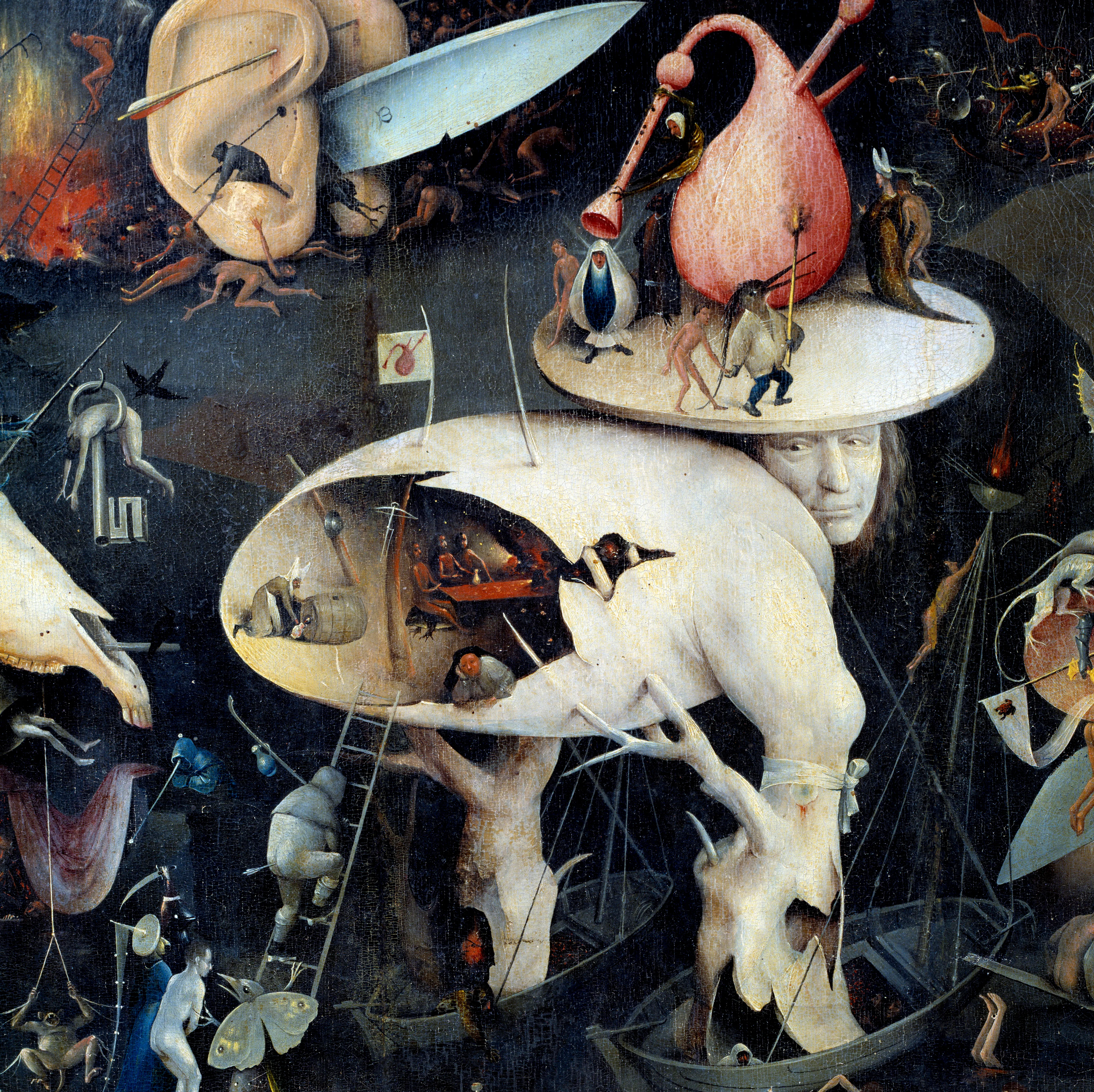
While there is further lore that sheds light on the origins of what humans are in Metaphor towards the end of the game, I’d personally found myself grossly invested when investigating what these beasts meant early on in Metaphor's story regarding the game’s messages as a whole.
Because believe it or not, going 50+ hours into a JRPG delving into themes of prejudice and inequality only to have its central characters regard humankind with incredible vehement distaste sets a precedent for what the game is trying to tell its players about society as a whole. To me, it felt as if the game was implying that despite the races within its Euchronia being far from friendly with each other, we, as people, weren’t much better ourselves. Metaphor portrays humans in a disgusting, inverse light, as if to highlight that the humans in our own reality could just as well reflect the very ones in the game's setting as well.
Reading between the lines of Fantasy & Reality
To conclude this article would also mean to talk about the conclusion that Metaphor ends with.
Please be aware that the following texts in this article will heavily spoil the game's finale. However, I will attempt to be considerate and only spoil what is relevant to my analysis of the game's themes.
In reality, the final act of Metaphor:ReFantazio doesn’t end with a perfect, ideal world, but it does showcase a very powerful choice that the protagonist is given before being allowed a chance at beating Louise.
One of the biggest revelations in Metaphor’s story is the protagonist being enlightened about the state of his world. Put simply, he’s told that his world was never real to begin with. The people he grew and fought with were fated to die and fall at the cruel whims of an unfair world. As for the protagonist, he’s given a chance at saving himself. His salvation lies at the heart of a new world: Our world.
In a bold twist of fate, the protagonist is given a chance at defying his reality to embrace our very own. He’s told that this world is the very one he always admired, as it’s the one that his fantasy book was based on when it was written - in essence, it's the game's vision of a true eutopia.

But there's a harsh reality to contend with: No world is perfect. The protagonist realises that his defined impression of Fantasy from his novel is impossible. Every world has some amount of strife or conflict, and our world is no different. Whether his world is real or not doesn’t matter, because rejecting the friends he fought with would be equal to rejecting the effort he put in to change Euchronia's society to begin with.
Call me crazy, because being impressed by a fourth-wall break in a video game's story, while often cliched, can be incredibly powerful if done right. A lot of game’s try to do this, and while some succeed at it, a lot often fail.
I believe what makes Metaphor stand out when attempting this trope comes down to two things: Being both its conceptualisation and overall build-up throughout the game to lead to this big reveal reveal.
Before anything else, “Fantasy” is described as a utopia in the world of Metaphor. The act of changing the world to become a better place in Euchronia is such a bizarre concept that the characters besides the protagonist regard at it as being fictitious in nature. It’s why having solely the protagonist learn the truth of the world, alongside realising that the world he desired for isn’t any better than Euchronia struck such a profound chord in me.
Before anything else, Metaphor places the player in the protagonist’s shoes, making them realise that while complete change is impossible to accomplish in our world, it’s the very willingness to try accomplishing something within our society that can amount to something. That's seen in the very act of the protagonist defying this choice when given it so that he can return to his friends and save Euchronia from Louise's antagonistic rule.
To conclude, Metaphor:ReFantazio challenges its players. It let's them know that fantasy isn’t merely a fictitious dream. If you put your mind to it without cutting corners, you too can make "Fantasy" a "Reality". It doesn't matter what you want to accomplish - but only that you want to attempt making change to begin with. When you begin the game, you're asked if fantasy could truly affect reality. By the time you finish the game, the players comes to realise that the answer is "yes. Fantasy can affect reality, because it gives us the very drive to do so in the first place."